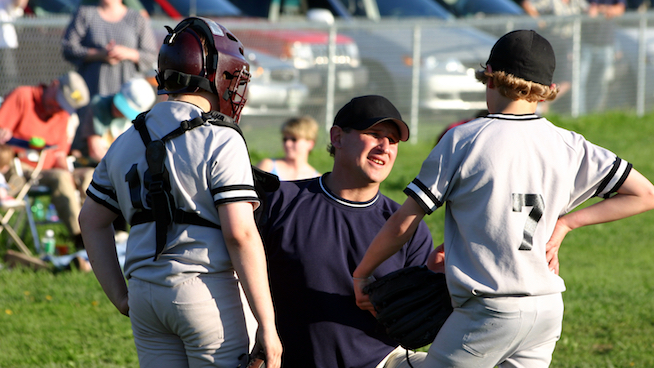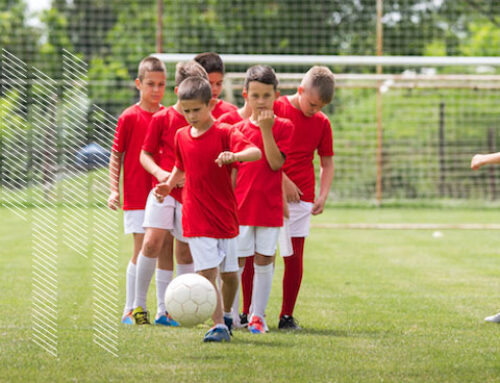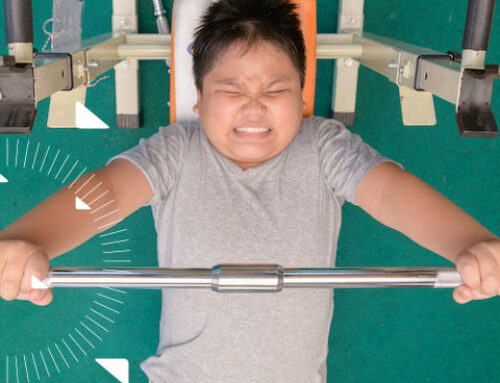From a coach’s perspective, one of the more frustrating situations in youth and high school sports is when parents undermine coaches by openly complaining about them to their child. The inclination to turn car rides or dinnertime into a referendum on the perceived quality of the coach is never productive. It doesn’t benefit the child, and it’s exasperating for the coach. The same could be said for complaining to your child about their teachers.
Parents and coaches will not always see eye-to-eye, but those disputes can be effectively managed by both parties. Confusion arises when parents openly complain to their child about the coach or teacher. Foremost, which adult should the child listen to? Most kids will naturally gravitate toward the parent and away from the coach or teacher. When they do so, their capacity to accept coaching and criticism is greatly weakened. Why should they respect their coach or teacher when their parent clearly does not? The end result is a child who lacks the ability to take responsibility for themselves, who learns to shift blame, and whose growth and development both in sports and in life are ultimately stunted.
Don’t get me wrong, coaches and teachers certainly don’t bat 1.000. First-hand experience tells me that some less than stellar individuals occupy coaching positions throughout youth and high school sports. If a coach is abusive, manipulative or clearly harming children, parents must step in. But parents should avoid interjecting when it comes to concerns about playing time, tactics or other decisions that are the domain of the coach. Casting doubt upon the coach’s sports acumen or attempting to coach over them will not enhance your child’s experience.
Growing up, my parents maintained a united front with coaches and teachers. Those adults represented a de facto extension of the rules and expectations they laid out at home. Problems at school would be further handled when I walked through my front door. After all, it was not the teacher’s fault I was doing poorly in a class or misbehaving. In fact, those issues could easily be traced back to my failure to do something I was supposed to do. In sports, concerns about playing time or tactics were mine to deal with, respectfully of course. My parents were acting as farmers rather than helicopters.
For example, when I returned for my second year of little league, I believed I had my position sewn up. And I did, except I started making some lazy mistakes that rightly drew my coach’s ire. He combated my sense of entitlement by benching me in our first game. Despite being quite upset, I refused to acknowledge my role in the benching. My parents didn’t back me up, nor did they complain about the decision. My mom simply told me that if I wanted to play I’d better drop the attitude and earn my spot back.
During high school football, my concern about a potential mid-season position change was met with level headed advice, rather than a rant about the foolishness of the decision. After all, the coach was intimately more familiar with the needs of the team. His thought process was well reasoned and driven by necessity, not incompetence. My parents recognized that, and didn’t see the need to pile on to a coach navigating a tough situation.
Those experiences (and many others) taught me that blaming others or complaining were valueless choices. Because I was not absolved of responsibility, I learned to work hard, be coachable and work to solve my own problems. Outcomes were quite a bit better when I chose the second path rather than the first, and that’s held true into my adult life.
What about emailing a coach to lobby for playing time? Parents shouldn’t be fighting those battles, and I believe most kids would prefer they didn’t. Advice is one thing, but to have my parents reach out to my high school football coach to lobby my concerns would have been beyond embarrassing, and simultaneously, detrimental to my credibility. Coaches have great respect for young people who can fight through adversity and take the responsibility to grow and improve. If a kid is not happy with their playing time, why don’t they themselves ask the coach what they need to work on to help get off the bench?
In your adult life, are you able to push everyone around and always get your way? Of course not. So why mislead your child into thinking that’s the way the world works. You also have to remember there are 10-20 other kids (if not more, depending on the sport) on your child’s team. If the coach folded to every parent’s demands, the team would devolve into anarchy.
At its core, childhood is a recurring series of teachable moments that require increasing levels of maturity. Our job as adults is to model the appropriate behavior and equip kids with the skills they’ll need to handle life’s hurdles. That means coaches and teachers need to do their jobs well and have each other’s backs. Parents need to step back, cheer loudly and let their child manage the relationship with their coach. We must strive to avoid behaviors that reinforce a lack of responsibility or undermine a child’s opportunity to take ownership. Our kids will do enough of that on their own, without our help. After all, that’s the nature of being a kid. If each party holds to their role in that aspect of the development process we’ll raise happy, healthy and mature kids who grow into successful, outstanding adults.
Photo Credit: jpbcpa/iStock
READ MORE:







Leave A Comment
You must be logged in to post a comment.